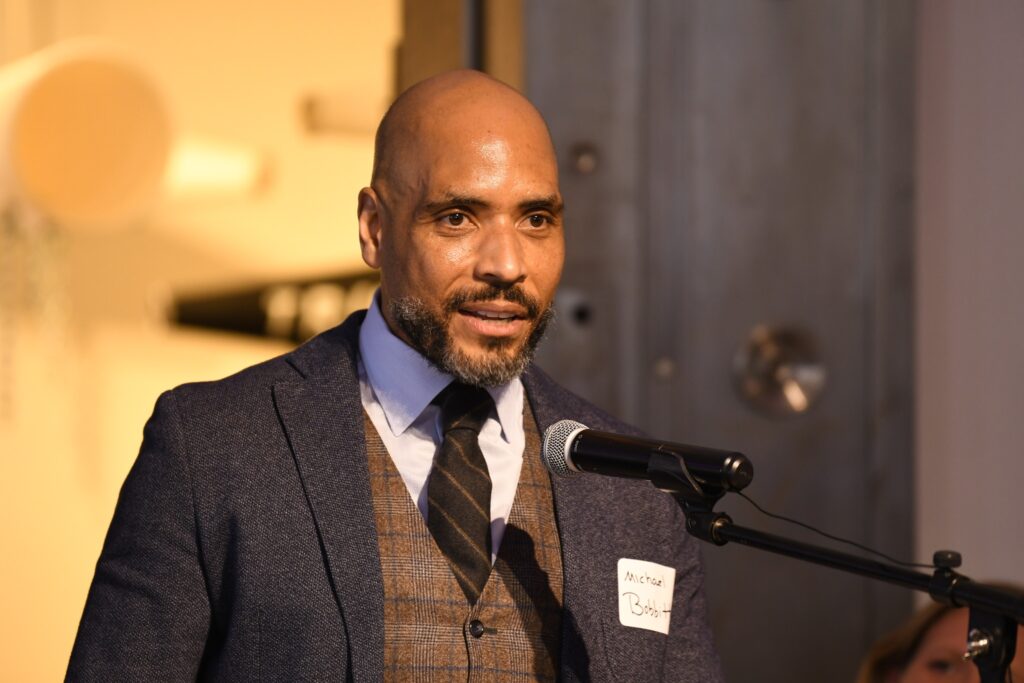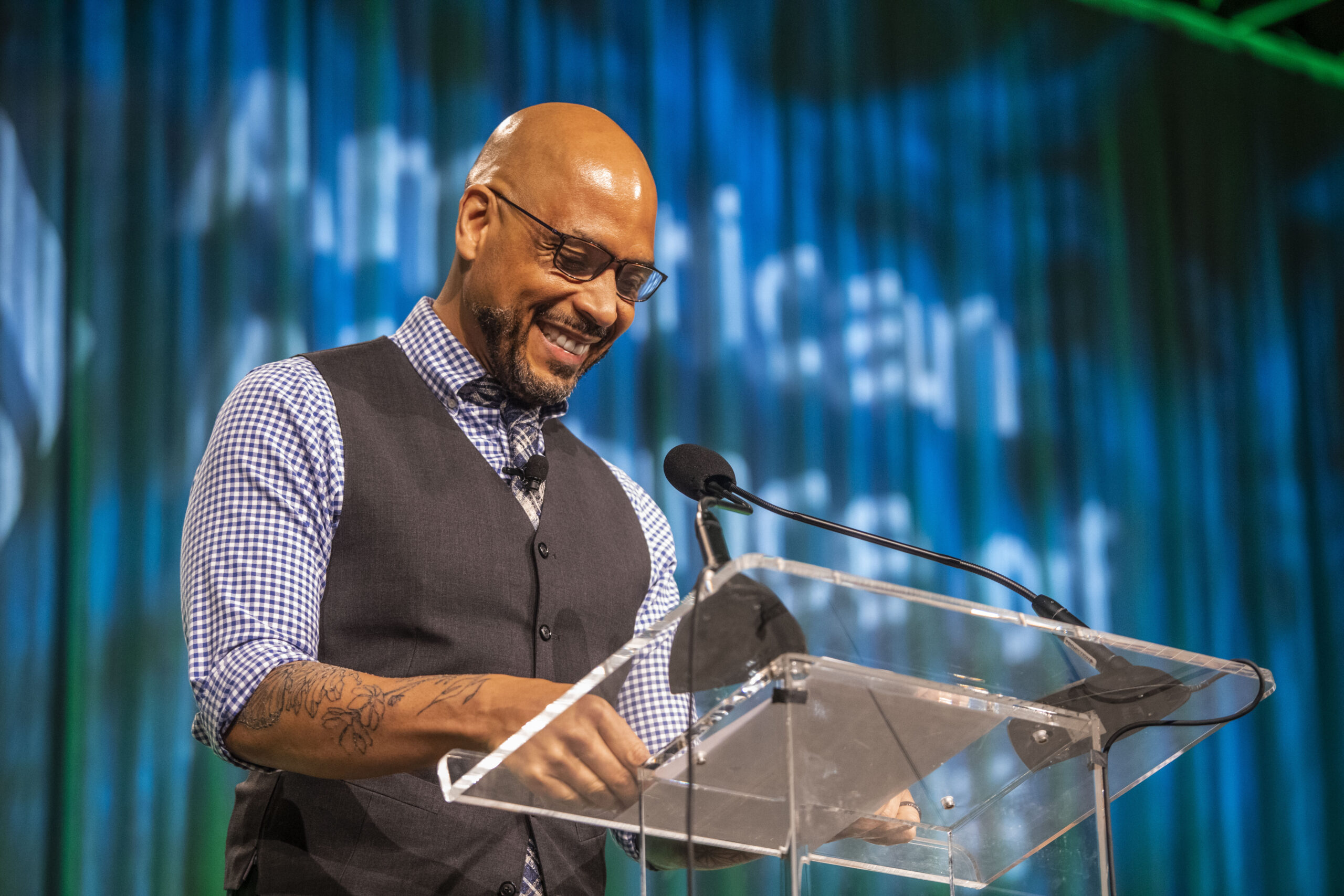For decades, the arts has been in a constant state of crisis caused by a lack of resources and a lack of awareness.
Mass Cultural Council is looking to change that by addressing the systemic root of the problem. “I would love to talk with the sector about critically looking at their business models, many of which were built 70 to 75 years ago, and which might be contributing to declining revenues and patronage,” says its Executive Director Michael J. Bobbitt.
Two-and-a-half years ago, at the height of the pandemic, Mass Cultural Council tapped Bobbitt to helm the state agency. A lifelong artist who turned his passion for creating into a vocation, his goal these days is “making sure other people have exposure to the arts because it may save their life as well.”
Bobbitt, who is a theater director, choreographer, and playwright credits, “the arts for saving my life. I come from a family that struggled not only with jobs and income, but with adults who had addictions. The fact I got to go to music and dance and theatre classes – these kinds of things really got me out of bed and really motivated me.”
When they say art has the power to transform lives, one only need look at where Bobbitt started and where he is today, serving as the highest-ranking cultural official in Massachusetts state government. Next week, he will kick off the Creative Exchange (CX) Conference at the Cotuit Center for the Arts when he sits down with Arts Foundation of Cape Cod Executive Director Julie Wake.
During their conversation, Bobbitt will highlight his agency’s strategy for elevating the arts and eliminating the roadblocks which have plagued the sector for decades. It’s tied to Mass Cultural Council’s newly adopted Strategic Plan which will guide its work over the next three years.
“We took a long look at the history of the work we’re doing, the needs of the sector and went back to our enabling act,” Bobbitt says. “The agency was created to support the sector and what we have done tactically is support it, meaning we’ve funded the sector and offered money to the sector.”
He admits that the Agency can never provide enough funding for all arts organizations and artists in the state. That has led to finding other pathways to solving its needs beyond annual grant making.

“We’re now talking business development – integrating the sector into the rest of the Commonwealth with other agencies,” he explains. “This year is about raising awareness of the arts to other agencies and training our staff and building the infrastructure we need for the advancement of the arts in healthcare, education, and affinity groups.”
There’s an excitement in Bobbitt’s voice as he talks about connecting with organizations like the Massachusetts Lodging Association, the Massachusetts Municipal Association, and the Massachusetts Chamber of Commerce, involving them in discussions about the arts and how it can play a role in cross-sector collaborations.
It will hopefully translate into more resources being allocated to the arts because more “state agencies will have grant programs which include the cultural sector,” Bobbitt says.
While the arts have been good at creating, it has been less adept at creating relationships, preferring to operate in silos. “In general, my years of being in the creative and cultural sector, it segregates itself from other sectors which I don’t think works well for anyone,” he says. “Integration brings more value and more attention to the creative and cultural sector. If you want the arts in the healthcare industry or the real estate development industry, you have to get to know them. We as artists and arts leaders need to get away from our desks and studios and rehearsal rooms.
“If that kind of stuff happened in every community, our cultural sector would be so much stronger, we’d have so many more patrons, and we’d be so much more visible,” he continues.
While the state is leading this effort, the real change, he stresses, will come at the local level, in communities like Cape Cod where arts leaders need to think beyond the arts and into other sectors like science, engineering, education, hospitality, real estate, education, technology, retail, and healthcare.
To purchase tickets to the CX Conference, which takes place Wednesday, October 4, 9 am to 6 pm, at the Cotuit Center for the Arts, click this link.

